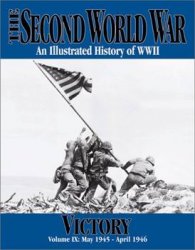In the southern part of the Ardennes, the roads were not only narrow, meandering, and steep, but few in number. The supply columns for
Guderian’s 2.Pz. Div were already entangled with those of Reinhardt’s supply units on 12 May, and the engineers and artillery that Guderian desperately needed for his crossing at Sedan were held up somewhere on the road. Furthermore, 2.Pz. Div itself had got so entangled crossing the river Semois that it had to be disentangled by an officer in a light aircraft overhead. Indeed, so cramped were vehicular movements on these forest roads that the infantry moved through the woods in order to keep the roads as clear as possible for wheeled and tracked units.
It was not difficult for the French to guess that the Germans would swing south to strike at Sedan, even if for no better reason than that, in 1870, the French Army had here suffered the greatest defeat of modem times—and at German hands.
Gamelin, the French Commander in Chief, had ordered that the town of Sedan must be defended at all costs. In fact it was not defended at all. The fortress regiment stationed there simply disappeared long before the panzer columns reached the town.
If the town was difficult to defend, even more so was the adjacent loop of water, short-circuited at its neck. On the other hand, by withdrawing from the town and this “island” the French could use the Meuse as a natural defense line, for the land rose along the south bank; the German-held northern bank was open, flat, and in places marshy.
To the west of the town the French 55th Infantry Division, a B-class unit (mostly reserves), manned concrete blockhouses along the river. Like its neighbors, this division had about a quarter of its full complement of 2.5 cm antitank guns, although in storage depots at this time there were 520 such guns, enough to equip ten divisions. These were the same weapons that the French had been selling abroad by the hundred. There was a similar shortage of antiaircraft guns. However, 55th Infantry Division did have double the normal number of artillery pieces, and most of the corps artillery too, making twenty-eight guns per mile for its five-mile-wide front.
In billets behind this defense line there was another B-class infantry division, the 71st. It was less effective than the 55th. On 10 May, because of leave and sickness, 7,000 of its 17,000 men were not available to fight. Those remaining were hurried forward at the news of the German attack and squeezed between the two units already there. This led to some confusion about who manned what, but eventually it was sorted out.
This was the decisive moment for Guderian. During training, great emphasis had been given to the tactics of crossing the Meuse under fire. A section of the Moselle River, in the western Rhineland, had been chosen in order to reproduce the terrain for exercises, and Guderian’s most bitter arguments with his superiors had come when they suggested a delay at the river Meuse. But the Meuse advance had gone less smoothly than he had hoped, not because of enemy action but simply because of the traffic jams. His l. Pz. Div and lO. Pz. Div were already at the river, but 2.Pz. Div was delayed. This was one of the best-equipped divisions, as well as having with it an extra battalion of artillery which would be sorely needed for the attack.
Guderian, shaken no doubt by a narrow escape when a bomb hit his headquarters in the Hotel Panorama on the heights above Bouillon, now showed a most uncharacteristic failure of nerve. He decided to wait until his whole armored corps had arrived at the Meuse. Ironically it was Kleist—the man who had been appointed panzer group commander to limit Guderian’s impetuosity—who now ordered that the attack should go ahead with all possible speed, in spite of the absence of the 2.Pz. Div and its extra artillery, and despite Guderian’s cautions. In order to start the crossing attempt by 4 p. m. the following day, 13 May, Walther Nehring, Guderian’s chief of staff, resorted to the use of the war-games orders, amending just the times and dates.




 World History
World History









